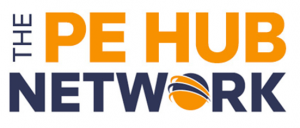Dynamic planning when uncertainty is the new normal | PE Hub
Value creation needs to be dynamic – not a plan, but a planning exercise. COVID has put the exclamation point on that perspective. Uncertainty is the new normal.
By Allen Schaar, Managing Director, & Srin Subra, Managing Director
Uncertainty. Has there ever been a word that more accurately captures the current state of mind and market? Or a word so overused as a result?

Uncertainty is, in many ways, the 2020 version of value creation, in that its ubiquity has threatened to overshadow its importance. That’s a big problem because, individually, uncertainty and value creation are critical to understanding market context and investment potential. And when linked (in a way they’ve never been prior, but must be going forward), they’re critical to driving investment performance.
PE has a playbook: Sponsors acquire a company with an investment thesis, develop a value creation plan (VCP), execute on that plan, and exit the investment at a higher multiple. The playbook’s success is inextricably tied to the validity of the VCP, which is created just before or after the deal, and is rarely revisited thereafter. In the face of uncertainty, VCPs must be much more dynamic than has been the norm.
Sponsors have tried to hedge against uncertainty by underwriting for different scenarios, installing management teams who can capably pivot, investing in annual planning, and conducting quarterly forecasts. While all of those activities are critical, none of them serve as the north star of the investment in the way a VCP does.
We have long-said that value creation needs to be dynamic – not a plan, but a planning exercise. COVID has put the exclamation point on that perspective. Uncertainty is the new normal and sponsors must manage accordingly. We believe they can do so effectively by leveraging a value creation planning plus (VCP+) framework.
VCP+ is a redesigned approach to planning (long-range, forecasting and budgeting). A dynamic model anchored around value impact, VCP+ enables portfolio companies to anticipate change and modify their VCP in order to mitigate or exploit new market realities. It incorporates these critical principles:
VCP+ is a new paradigm for navigating certain uncertainty. But, in order for it to be successful, portfolio companies must have the acceptance of, and commitment to, managing uncertainty. This isn’t an annual planning exercise, it’s ongoing agile management. They must also have an FP&A team capable of causality analytics and complex modeling. And the companies must invest in time, executive resources and enabling technology.
VCP+ is not only the answer to COVID-induced volatility, it’s the approach that will enable sponsors to navigate their portfolio through this black swan event and the inevitability of the next perfect storm, market correction or unexpected business hiccup.
Value creation needs to be dynamic – not a plan, but a planning exercise. COVID has put the exclamation point on that perspective. Uncertainty is the new normal.